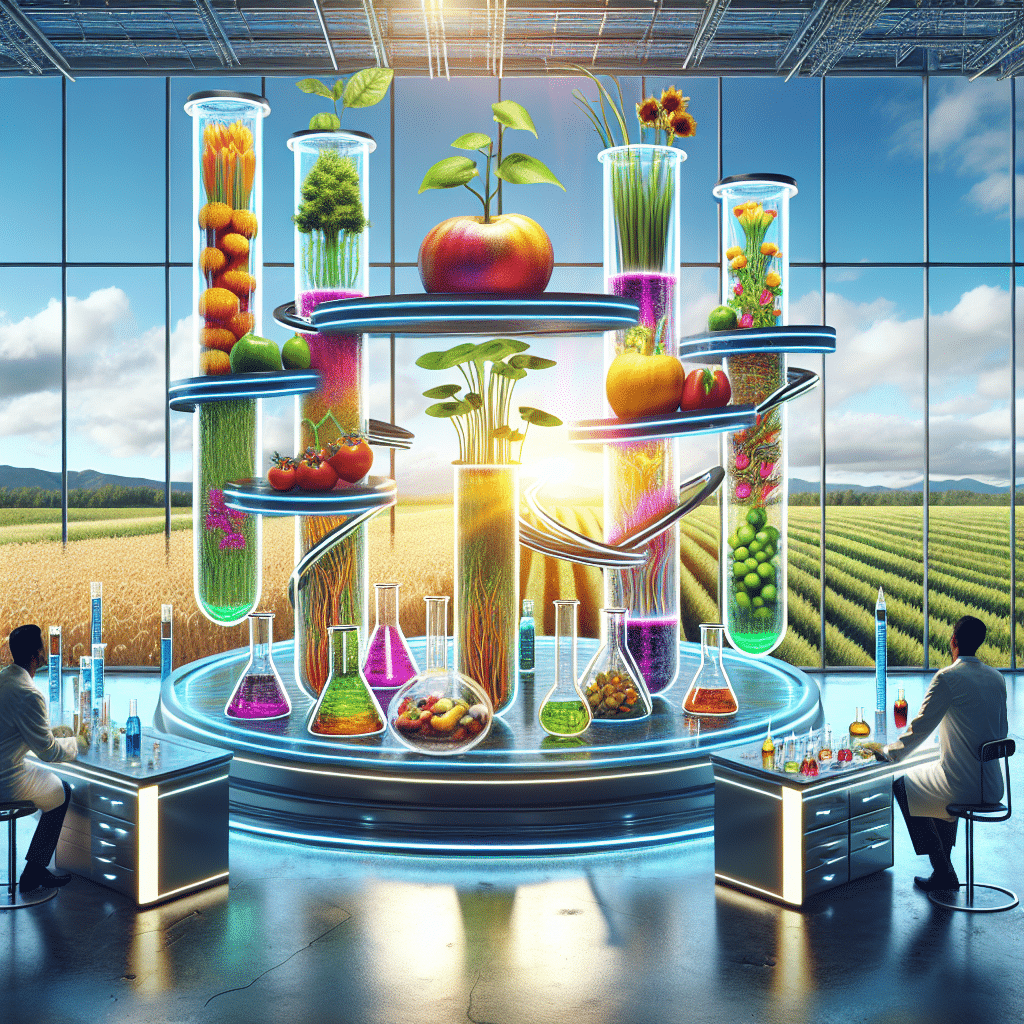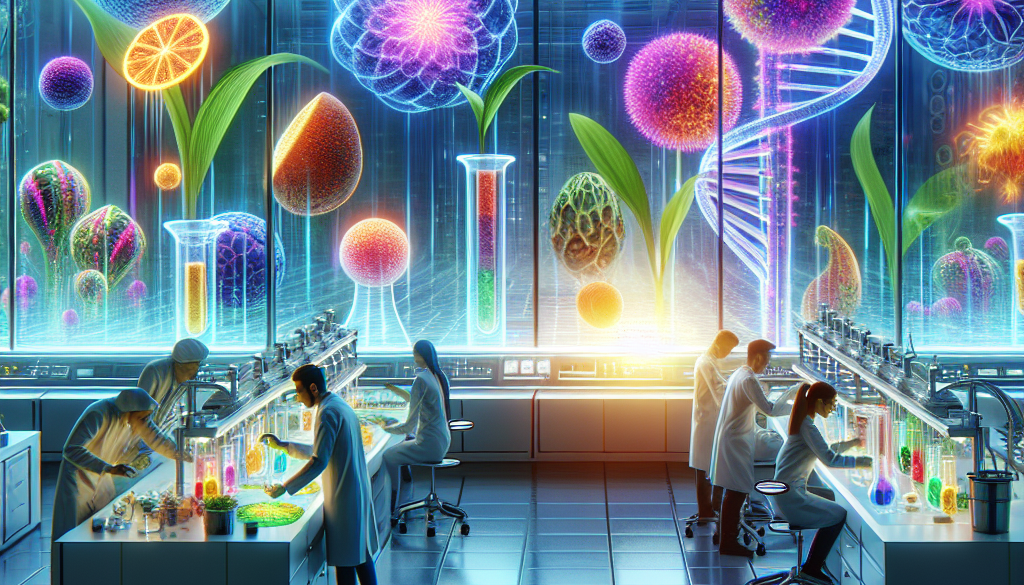Superfoods of the Future may be from Labs, not Fields
-
Table of Contents
- Superfoods of the Future: Lab-Grown Innovations Transforming Nutrition
- The Rise of Lab-Grown Superfoods
- Examples of Lab-Grown Superfoods
- Case Studies: Success Stories in Lab-Grown Nutrition
- Challenges and Considerations
- Statistics and Market Growth
- Conclusion: Embracing the Future of Superfoods
- ETChem: Pioneering Protein Products for Tomorrow’s Nutrition
Superfoods of the Future: Lab-Grown Innovations Transforming Nutrition

The concept of superfoods has captivated the health and wellness industry for years, with a focus on naturally nutrient-rich foods that offer significant health benefits. However, as the global population continues to grow and environmental concerns mount, the future of superfoods is shifting towards more sustainable and innovative sources. Lab-grown foods are emerging as the new frontier in nutrition, promising to deliver enhanced benefits without the environmental drawbacks of traditional agriculture.
The Rise of Lab-Grown Superfoods
Scientific advancements are paving the way for a new era of superfoods cultivated in controlled laboratory environments. These lab-grown foods are engineered to be more nutritious, sustainable, and accessible than their field-grown counterparts. Here are some key reasons why the future of superfoods may lie in labs:
- Sustainability: Lab-grown foods require significantly less land, water, and resources compared to traditional farming, reducing the environmental impact.
- Customization: Nutrient profiles can be tailored to meet specific dietary needs, creating personalized superfoods that cater to individual health requirements.
- Consistency: Controlled lab conditions ensure a consistent supply of high-quality superfoods, regardless of external factors like climate change or seasonal variations.
- Scalability: Lab-grown foods can be produced at scale to meet the demands of a growing population, without the limitations of arable land.
Examples of Lab-Grown Superfoods
Several companies and research institutions are at the forefront of developing lab-grown superfoods. Here are some notable examples:
- Cultured Meat: Companies like Memphis Meats and Mosa Meat are creating lab-grown meat that offers the same nutritional benefits as traditional meat without the ethical and environmental concerns associated with livestock farming.
- Algae-Based Proteins: Algae, such as spirulina, are being cultivated in bioreactors to produce high-protein superfoods that also contain essential vitamins and minerals.
- Cellular Agriculture: Startups like Perfect Day are using fermentation to produce dairy proteins without cows, resulting in dairy products with enhanced nutritional profiles.
Case Studies: Success Stories in Lab-Grown Nutrition
Several case studies highlight the potential of lab-grown superfoods to revolutionize the food industry:
- Impossible Foods: Known for its plant-based burgers that mimic the taste and texture of meat, Impossible Foods uses bioengineering to create heme, an iron-rich compound that gives its products a meaty flavor.
- JUST Egg: Made from mung bean protein, JUST Egg replicates the taste and nutritional value of chicken eggs, offering a sustainable and cholesterol-free alternative.
- BlueNalu: This company is developing cell-cultured seafood products, providing a solution to overfishing and the depletion of ocean resources.
Challenges and Considerations
While lab-grown superfoods offer many advantages, there are challenges to consider:
- Public Perception: Consumer acceptance of lab-grown foods is crucial for widespread adoption. Education and transparency about the safety and benefits are necessary to overcome skepticism.
- Regulatory Hurdles: Governments must establish clear regulations to ensure the safety and labeling of lab-grown foods, which is essential for consumer trust.
- Cost: Initially, lab-grown superfoods may be more expensive than traditional options. However, as technology advances, costs are expected to decrease.
Statistics and Market Growth
The market for lab-grown foods is rapidly expanding. According to a report by MarketsandMarkets, the cultured meat market size is projected to reach $214 million by 2025, growing at a compound annual growth rate (CAGR) of 15.7% from 2025 to 2032. The plant-based protein market is also expected to grow significantly, with a projected value of $14.5 billion by 2025, according to a report by Meticulous Research.
Conclusion: Embracing the Future of Superfoods
The future of superfoods is not limited to what can be grown in fields; it extends to what can be cultivated in labs. Lab-grown superfoods offer a promising solution to the challenges of feeding a growing population sustainably and healthily. As technology continues to advance, we can expect to see more innovative and environmentally friendly superfoods entering the market, transforming the way we think about nutrition and food production.
ETChem: Pioneering Protein Products for Tomorrow’s Nutrition
As we look towards the future of superfoods, it’s important to recognize companies like ETChem that are contributing to the advancement of protein products. ETChem’s commitment to quality and innovation makes them a key player in the evolving landscape of nutrition.
About ETChem:
ETChem, a reputable Chinese Collagen factory manufacturer and supplier, is renowned for producing, stocking, exporting, and delivering the highest quality collagens. They include marine collagen, fish collagen, bovine collagen, chicken collagen, type I collagen, type II collagen and type III collagen etc. Their offerings, characterized by a neutral taste, instant solubility attributes, cater to a diverse range of industries. They serve nutraceutical, pharmaceutical, cosmeceutical, veterinary, as well as food and beverage finished product distributors, traders, and manufacturers across Europe, USA, Canada, Australia, Thailand, Japan, Korea, Brazil, and Chile, among others.
ETChem specialization includes exporting and delivering tailor-made collagen powder and finished collagen nutritional supplements. Their extensive product range covers sectors like Food and Beverage, Sports Nutrition, Weight Management, Dietary Supplements, Health and Wellness Products, ensuring comprehensive solutions to meet all your protein needs.
As a trusted company by leading global food and beverage brands and Fortune 500 companies, ETChem reinforces China’s reputation in the global arena. For more information or to sample their products, please contact them and email karen(at)et-chem.com today.




